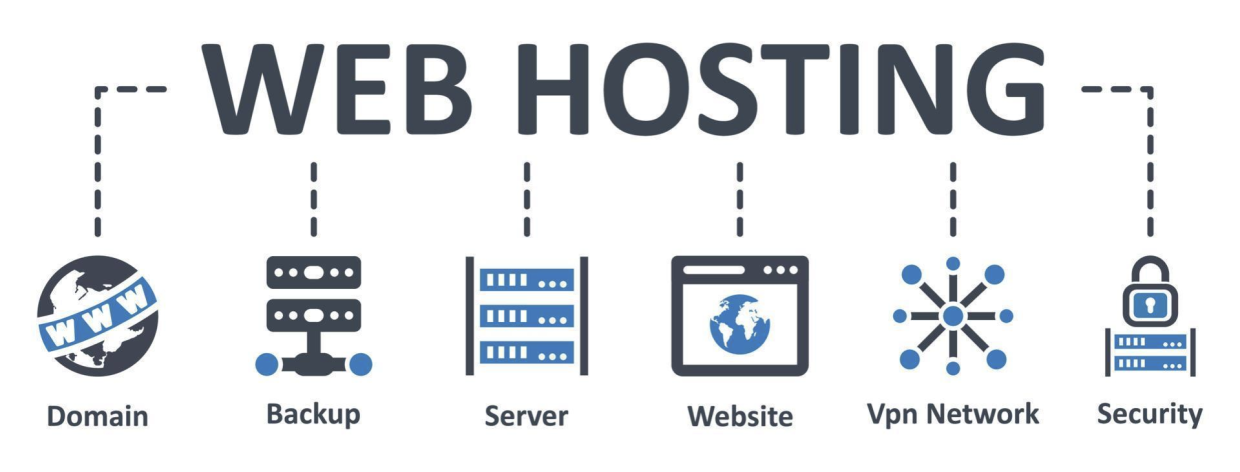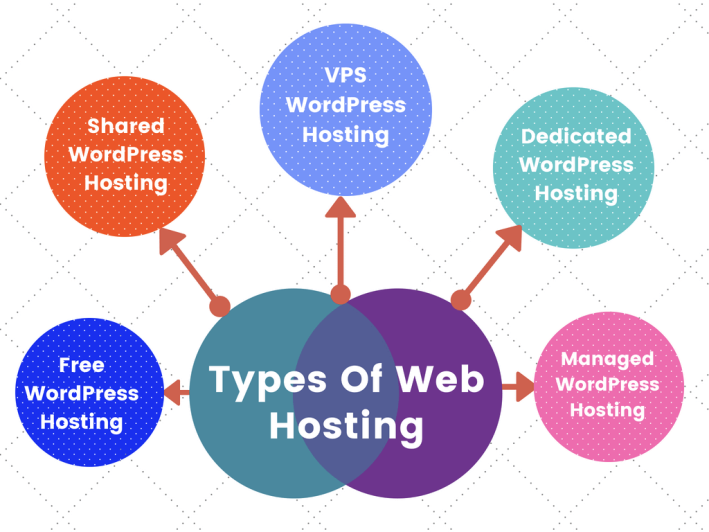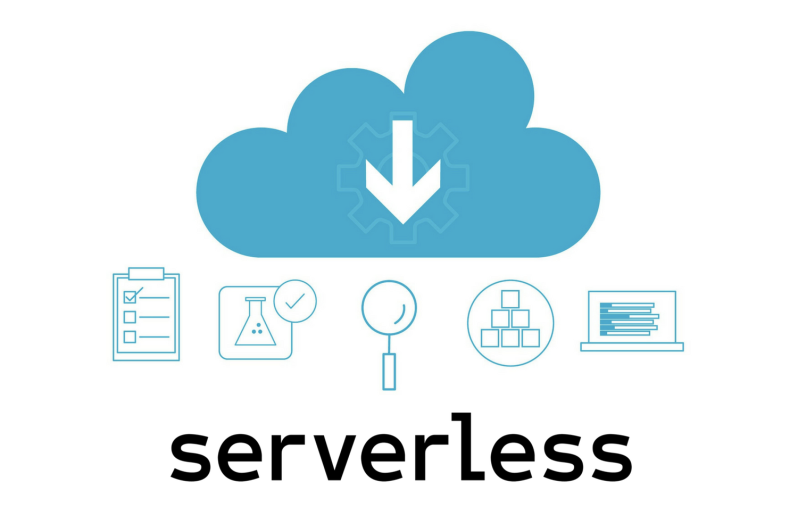The world of web hosting is constantly evolving, and 2025 is set to bring some fascinating changes.
As websites become more complex and demand higher performance, web hosting providers work hard to meet user needs. If you want to stay ahead of the game, you must keep up with the latest trends.
Whether launching your first website or upgrading your online presence, understanding what’s coming next will help you choose the best hosting plan that keeps you competitive and ready for growth.
What Is Web Hosting?

In simple terms, web hosting is a service that allows individuals and businesses to make their websites accessible on the internet. It works by storing website files on servers and making them available to users whenever they search for your site.
Without a reliable web hosting service, your website wouldn’t be able to function properly or even be visible online.
Every website you’ve ever visited is hosted on a server, and those servers are managed by hosting companies. There are many types of hosting plans available, such as shared hosting, dedicated servers, and cloud hosting.
Each type of hosting comes with its own set of features designed to meet specific website needs.

Here’s a table outlining the different types of web hosting:
| Type of Web Hosting | Description | Best For | Key Features |
| Shared Hosting | Multiple websites share the same server resources. | Beginners, small blogs, or websites with low traffic. | Affordable, easy to set up, limited resources and control. |
| VPS Hosting | Virtual Private Server where users have dedicated resources within a shared environment. | Websites with growing traffic that need more control and flexibility. | Dedicated resources, customizable, better performance, moderately priced. |
| Dedicated Hosting | One physical server dedicated entirely to a single user. | Large websites, high-traffic businesses, or those needing maximum control. | Full server control, high performance, very expensive. |
| Free Hosting | Web hosting provided at no cost, often with limitations or ads. | Personal websites, small hobby projects, or testing. | Free, limited features, often includes ads, very limited storage and bandwidth. |
| Managed Hosting | Hosting where the provider handles technical management tasks like updates, backups, and security. | Businesses or individuals who want to focus on content without worrying about server maintenance. | Hassle-free, server management, more expensive than unmanaged options. |
Benefits of Web Hosting
- Reliable Uptime: It ensures your website is available around the clock, minimizing downtime and offering a seamless experience for visitors.
- Data Security: It protects sensitive information through advanced security features like SSL certificates, firewalls, and regular backups.
- Scalability: It allows you to expand your hosting plan as your website traffic grows, ensuring that your site runs smoothly no matter how large it gets.
- Improved Performance: Faster load times and efficient resource management ensure your site stays responsive, even during traffic spikes.
- Technical Support: It offers expert assistance when you face technical issues.
The Future of Web Hosting: Trends to Watch in 2025
1. AI-Powered Hosting

Artificial intelligence (AI) is making waves in many industries, and web hosting is no exception. By 2025, AI-powered hosting will become a key trend, automating various server management tasks like performance monitoring, load balancing, and security measures.
With AI, web hosts will predict potential server issues before they happen and fix them instantly, ensuring smooth website performance.
For example, AI could analyze patterns in your website’s traffic and optimize resources based on real-time data. If there’s a sudden spike in visitors, AI can adjust server capacity and prevent slowdowns.
Key Features
- Automated Performance Optimization: AI continuously monitors server performance, making real-time adjustments to optimize load times, resource allocation, and traffic management, ensuring websites run smoothly.
- Predictive Maintenance: AI detects potential issues like server failures or resource shortages before they happen, allowing for proactive maintenance and reducing the risk of downtime.
- Enhanced Security: AI analyzes traffic patterns to identify and block security threats such as malware or DDoS attacks, offering advanced protection against cyberattacks.
2. Green Hosting

Sustainability is no longer a luxury — it’s a necessity. As more businesses and individuals strive to reduce their carbon footprint, green hosting will take center stage in 2025.
Green web hosting refers to providers who use renewable energy sources or offset their carbon emissions to minimize environmental impact. This trend is crucial for a more sustainable internet because data centers are major energy consumers.
As the demand for sustainability rises, expect more hosting providers to adopt green practices, giving eco-conscious users peace of mind while hosting their websites.
Key Features
- Renewable Energy Usage: Green hosting providers power their data centers using renewable energy sources like wind, solar, or hydroelectric power, reducing their carbon footprint.
- Energy-Efficient Data Centers: Green hosting focuses on optimizing data center efficiency by using energy-saving technologies and reducing overall electricity consumption.
- Carbon Offset Programs: Many green hosting companies invest in carbon offset initiatives, such as planting trees or purchasing renewable energy credits, to balance out the environmental impact of their operations.
3. Edge Computing and Hosting

Edge computing is changing the way data is processed and delivered. Instead of relying solely on centralized servers, edge computing involves placing servers closer to the users at the “edge” of the network. This reduces latency and ensures faster delivery of website content.
By 2025, web hosting will increasingly integrate edge computing, allowing websites to load almost instantly, regardless of the user’s location.
A perfect example of this is Cloudflare, which uses edge computing to boost website performance by caching data at various points around the globe.
For websites with a global audience, edge computing will be a game-changer, offering quicker access and a smoother browsing experience.
Key Features
- Reduced Latency: By processing data closer to the end user, edge computing minimizes delays, providing faster access to website content and improving overall performance, especially for global audiences.
- Improved Reliability: Edge hosting distributes data across multiple locations, so even if one server experiences issues, others can pick up the load, ensuring higher uptime and reliability.
- Scalability: Edge computing allows for better scalability, as it can dynamically handle traffic spikes by leveraging nearby servers to balance the load.
4. Serverless Hosting

The concept of serverless hosting might sound odd — after all, how can hosting exist without servers? The truth is that serverless hosting doesn’t eliminate servers entirely; it abstracts server management from the user, allowing developers to focus solely on building their websites or applications.
By 2025, serverless hosting will become more mainstream, offering a simpler and more scalable solution for businesses of all sizes. You only pay for the computing power you use, making it a cost-effective option.
In the future, more hosting providers will adopt this model, allowing developers to create without the hassle of infrastructure management.
Key Features
- Automatic Scaling: Serverless hosting automatically allocates resources based on traffic demand, allowing websites to handle sudden traffic spikes without manual intervention or pre-allocated of resources.
- Pay-As-You-Go Pricing: You only pay for the exact resources your website uses, such as compute time and storage, reducing costs compared to traditional hosting models with fixed pricing.
- No Server Management: With serverless hosting, developers don’t need to manage or maintain servers, as the hosting provider handles all infrastructure, enabling a focus on building and deploying applications.
Conclusion
Cloud hosting has been a game-changer for many websites due to its scalability, flexibility, and cost-effectiveness.
By 2025, the use of cloud hosting will continue to grow as more businesses migrate to the cloud.
Expect to see advanced integrations and features like automated resource scaling and improved cost management for cloud hosting!
FAQ
1. How will AI influence customer support in web hosting by 2025?
AI-powered chatbots and virtual assistants are expected to provide faster, 24/7 customer support with more accurate troubleshooting and personalized responses based on user behavior and needs.
2. Will web hosting become more affordable in the future?
As hosting technology advances and cloud infrastructure scales, it’s likely that more cost-effective hosting options will emerge. However, prices may vary depending on premium services like enhanced security and AI-driven features.
3. How will 5G impact the web hosting industry?
The rollout of 5G will likely enhance web hosting by increasing data transfer speeds and improving user experiences, particularly for mobile-first websites and applications with real-time requirements, such as gaming and streaming.
Featured image credit: Freepik
Sponsored post




